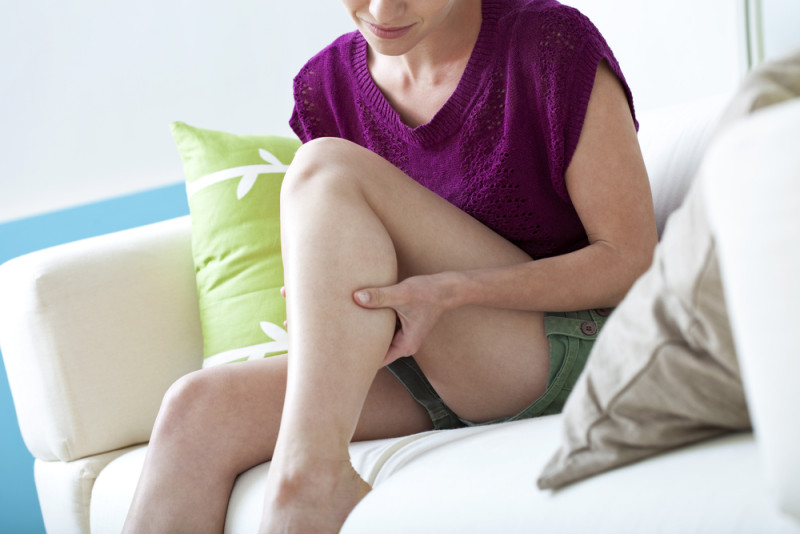
Leg cramps that happen during the night usually come in the form of a sudden spasm or tightening of the muscles in the calf, feet, or thighs. They often occur just as a person is falling asleep, or soon upon waking. The pain can be unbearable and can last from seconds to minutes. When the pain finally disappears, the muscles feel tight and may often still be painful.
Nighttime leg cramps are different from Restless Leg Syndrome. Both occur at night, but in Restless Leg Syndrome, moving the legs brings relief. Moving during a cramp will result in more pain. The cause of muscle cramps are often hard to determine. They may be brought on by several different conditions or activities, including:
- Exercising
- Injury
- Overuse of Muscles
- Pregnancy
- Calcium Deficiency
- Magnesium Deficiency
- Potassium Deficiency
- Exposure to Cold Temperatures
- Kidney Disease
- Thyroid Disease
- Blood Flow Problems
- Certain Medications
- Dehydration

If the muscle cramps you’re experiencing aren’t an indication of a more serious underlying condition, there are several natural ways you can treat them.
1. Stretching
Try to relax the muscle that’s cramping. Stop performing any activity that may have induced the cramp and lightly stretch the muscle. Hold the stretch and massage the muscle.
2. Acupuncture or Massage
Acupuncture can help to relax the muscles and get to the core of the problem. If needles aren’t your thing, try getting a massage on a regular basis to keep muscles from getting too tight.
3. Epsom Salt Bath
Many coaches, therapists and personal trainers recommend this method for cramping. Take a warm bath with Epsom salts — It will provide magnesium to the outside of your body, and the warm water will help to sooth your muscles.
4. Drink More Water
Dehydration is a common cause of muscle cramping. Downing a bottle of water when you get a cramp probably won’t work as a quick fix, but making sure to drink enough water each and every day will help to hydrate your body on a regular basis and prevent cramping in the future.
5. Stay Active
Going for a walk can help to eliminate cramping due to the contracting and relaxing of the leg muscles. Keeping muscles from remaining still for too long and becoming stiff can help prevent cramps.
6. Magnesium
If you don’t regularly have leg cramps that are not related to a more serious condition, try adding more magnesium to your diet. Nuts and seeds are excellent natural sources of magnesium. Talk to your doctor before taking any supplements.
What to Do During a Cramp
The remedies listed above are preventative measures. So what is one to do while experiencing a cramp? Leg cramps during the night can be extremely painful and even feel paralyzing. Try to remember these few tips to help with the pain.
- Get up from the bed if you can and try to move the leg; walk around to stimulate blood flow.
- Massage the muscle in circular motions.
- Make sure your sheets, blankets, and bedtime clothing are loose and breathable.
- Sit on the floor and extend your legs out in front of you. Flex your feet at the ankles and point the toes. Then use your hands to pull your feet and slowly stretch the muscles.


